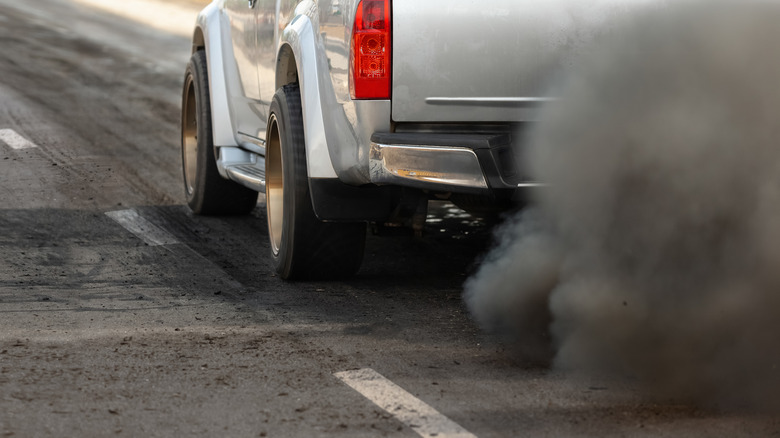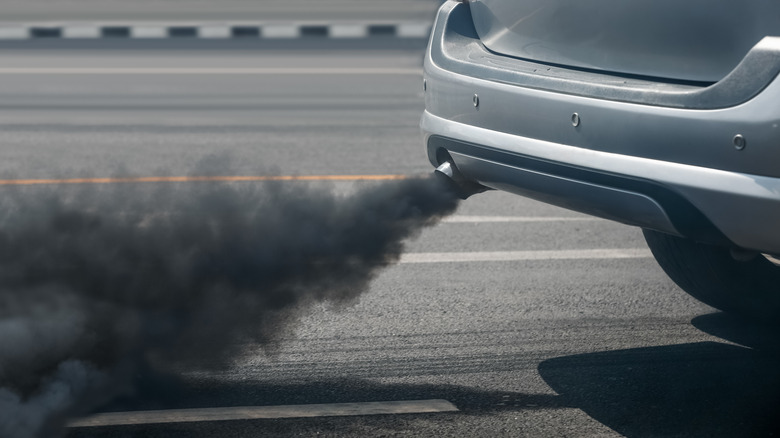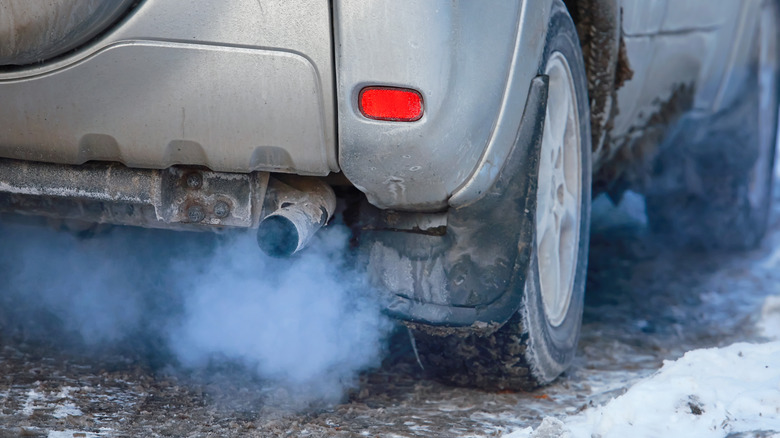Black Or Blue Smoke: What Might Be Causing It And What It Means For Your Diesel Engine
It's standard for older diesel engines to emit black smoke under full load, which occurs during "turbo lag." As the diesel engine waits for the turbo to spool, the machine will blow thicker black smoke (or "roll coal") until the turbo piles on the boost. However, modern common-rail diesel engines with direct fuel injection have enabled diesel motors to produce more power and torque without rolling coal.
A well-maintained diesel engine should produce zero smoke from the exhaust, although some black smoke is acceptable when accelerating from a stop. Moreover, consistently spewing visible smoke plumes could mean internal wear and should be checked by a professional immediately. Diesel engines could produce black, white, or blue smoke from the exhaust, indicating problems with the injectors, timing, an incorrect air-to-fuel ratio, etc.
Whatever the case, an incessantly smoking diesel motor is terrible news for the environment and your wallet. Below, we discuss the types of diesel smoke, what's causing it, and what it means for your beloved diesel engine.
Black smoke = incorrect combustion
If you notice black smoke from your diesel's tailpipe, it means incomplete combustion as the motor spews partially burned fuel. The black smoke or soot consists of elemental carbon from unburned diesel fuel caused by incomplete combustion. The phenomenon occurs when there's too much diesel (and lubricating oil) in the combustion chamber or insufficient air.
When you see black smoke from your diesel car or truck, the first thing to check is the air filter. A clogged air filter causes incomplete combustion, as do dirty fuel and oil filters. Meanwhile, a congested, polluted, or bad fuel injector could inject more fuel than required and cause over-fuelling and black smoke.
Moreover, excess sludge and engine deposits could also cause black smoke, particularly during cold starts. That's why pouring a bottle of diesel fuel additive in the tank during chilly weather is highly recommended to dissolve engine deposits, prevent incomplete combustion, and extend the service life of the diesel particulate filter (DPF).
In addition, damaged injectors could also cause white smoke. If you notice white smoke during cold starts that goes away when the diesel engine warms up, consider using an engine flush when changing the oil or a diesel fuel additive to rid the system of deposits.
Blue smoke = burning too much oil
All diesel engines burn a smidgen of oil during regular operation. It's not unusual for a diesel engine to spew bluish smoke in icy weather, but consistently blowing blue smoke could mean worn piston rings, cylinders, or stem seals. Moreover, using the wrong grade of diesel motor oil could also cause blue smoke, and so does overfilling the engine with oil.
Change the oil frequently and do not overfill to prevent blue smoke from your diesel. It's a good habit to regularly check the oil level using the dipstick and add more oil when necessary. In addition, always use the proper grade of motor oil. Remember that excessive diesel smoke –- whether black, white, or blue -– causes poor fuel economy and could lead to expensive repairs when left unchecked.
Finally, adhering to your diesel engine's periodic maintenance requirements will ensure a clean-burning, torquey motor at every start. Check the owner's manual to know when to inspect the injection timing and when to replace the oil, air filter, fuel filter, coolant, etc.


